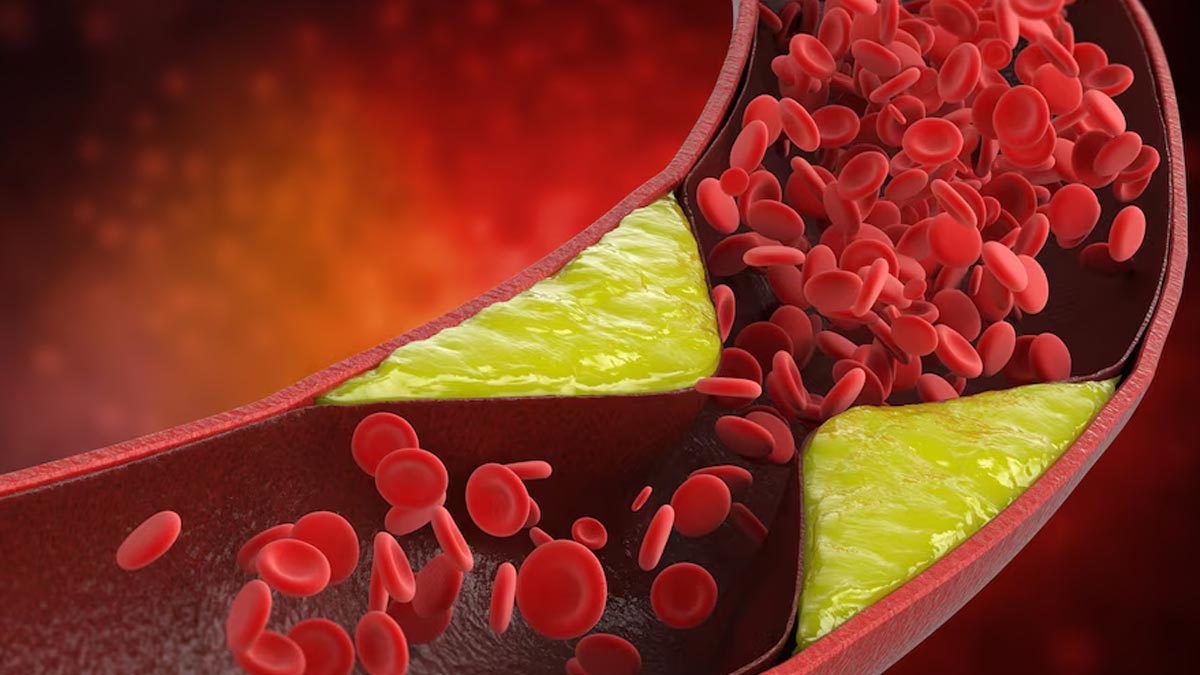
Guava, a tropical fruit renowned for its sweet-tart flavour, has long been celebrated for its nutritional prowess. But the unsung heroes of this fruit tree might be its leaves. Packed with a treasure trove of antioxidants and bioactive compounds, guava leaves have emerged as a potential natural remedy for managing cholesterol levels.
Table of Content:-
How Guava Leaves Help Manage Cholesterol
Cholesterol, a waxy substance produced by the liver, is essential for various bodily functions. However, high levels of ‘bad’ LDL (low-density lipoprotein) cholesterol can increase the risk of heart disease. This is where guava leaves might come into play.
According to a 2020 research by the University Of Lisboa, guava leaves contain compounds with antioxidant and anti-inflammatory properties. These compounds are believed to help:
- Reduce LDL Cholesterol: By inhibiting the absorption of cholesterol in the intestines.
- Increase HDL Cholesterol: Often referred to as ‘good’ cholesterol, HDL (high-density lipoprotein) helps remove LDL from the bloodstream.
- Improve Blood Vessel Health: By reducing inflammation and oxidative stress, guava leaves may promote healthy blood vessels.
While these findings are promising, it's important to note that the research is still ongoing, and more studies are needed to fully understand the mechanisms and extent of these effects.

How to Include Guava Leaves Into Your Diet
While more research is needed to fully understand the cholesterol-lowering effects of guava leaves, many people have found them beneficial when used regularly. Here are some ways to incorporate guava leaves into your routine:
- Guava Leaf Tea: This is a popular method. Simply dry guava leaves and steep them in hot water to make a tea.
- Guava Leaf Extract: Available in supplement form, guava leaf extract offers a concentrated dose of the compounds.
- Fresh Guava Leaves: Some people prefer to consume fresh guava leaves directly, though the taste might be strong.
However, it's essential to approach any dietary changes or supplement use with caution. If you have underlying health conditions or are taking medications, consulting with a healthcare professional before making significant adjustments to your routine is highly recommended.
Also Read: Cholesterol Levels Through The Roof? Here's How Tomato Juice Can Help You

Beyond Cholesterol: Potential Benefits Of Guava Leaves
Beyond cholesterol management, guava leaves have been traditionally used for various other health purposes. According to a study published in the journal ‘Foods,’ and led by researchers from the Indian Grassland and Fodder Research Institute — Central Institute for Research on Cotton Technology, guava leaves may support your health in the following ways:
- Digestive Health: Aiding in digestion and relieving symptoms like diarrhoea and constipation.
- Blood Sugar Control: Helping regulate blood sugar levels.
- Antimicrobial Properties: Potentially fighting bacterial and fungal infections.
Nevertheless, scientific evidence supporting these claims is limited, and further research is necessary.
Also Read: Dealing With High Cholesterol And Inflammation? Try These DIY Anti-Inflammatory Meals
Takeaway
While guava leaves show promise as a potential adjunct to a healthy lifestyle, they should not be considered a standalone treatment for high cholesterol. A balanced diet, regular exercise, and maintaining a healthy weight remain cornerstones of cholesterol management. By combining these lifestyle factors with potential benefits from natural sources like guava leaves, individuals can take proactive steps towards heart health.
Remember, individual responses to natural remedies can vary. Always prioritise consultation with a healthcare provider for personalised guidance.
Also watch this video
How we keep this article up to date:
We work with experts and keep a close eye on the latest in health and wellness. Whenever there is a new research or helpful information, we update our articles with accurate and useful advice.
Current Version